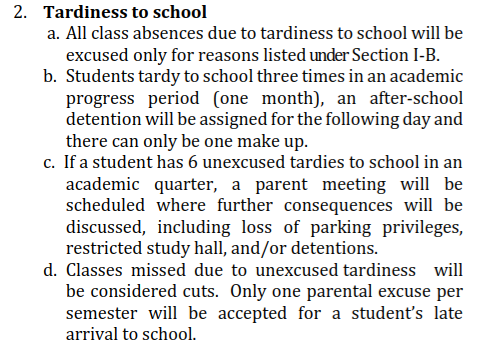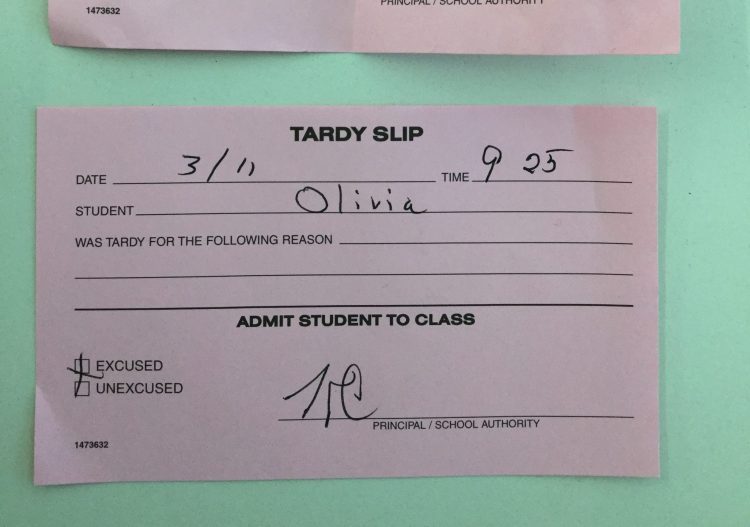Written by Max Hurtubise and Simon Hua|
At the Morgan School, there are a number of ways students can receive detention. They can get in fights, break the rules, and act disrespectfully. Often, however, it is not for such a bold offense but for being late. Moreover, an apparent inconsistency in this detention-giving practice is common. According to the Morgan Student Handbook, “Students tardy to school three times in an academic progress period (one month), an after-school detention will be assigned for the following day and there can only be one make up.” Ask the students about their experiences, however, and a different story is often told.

Senior Ingrid Rodriguez admits to having received a detention for being tardy just once, and Senior Meghan Denison claims to have been given detention after six tardies. Senior Paddy Murray says he faced detention after being late four times. This suggests a lack of consistency with the enforcement of the policy. Students who arrive late to school do not know whether they should expect detention.
Senior Sophia Dowd shares, “I think that the school sometimes does not follow through on the rules because they keep updating and changing them.” While there is widespread confusion as to whether the policy calls for detention after one, three, four, or six tardies, one fact remains clear: the students crave consistency.
Some students also desire a more fair punishment. Senior Grace Roman said, “I don’t think students deserve detention.” Some feel that the punishment is too harsh. After all, there are numerous reasons that a student might be late. Senior Melaine Coretti believes that “Teachers may think students don’t care about their class, but it may be because of some reason that may not be preventable.”
We decided to see Assistant Principal Tyler Webb to help us better understand the late policy. He told us what the student handbook says, adding that if the tardy is unexcused, and it has been more than twenty minutes, it is considered a cut. He also added that if a student is tardy five times, he/she will receive an in-school suspension. As for how tardy students are punished, In-School Suspension Monitor Christopher Rapuano will give Mr. Webb a note saying that the student has been tardy too many times. Mr. Webb then finds the student and relays what his/her punishment is.
Mr. Webb mentions that there is “no active campaign” to encourage punctuality among students. He estimates that two percent of the student population is chronically tardy,


